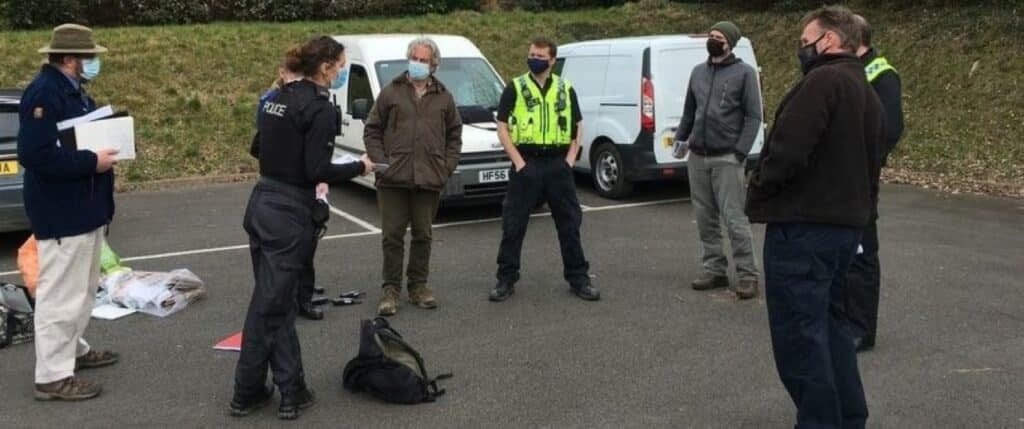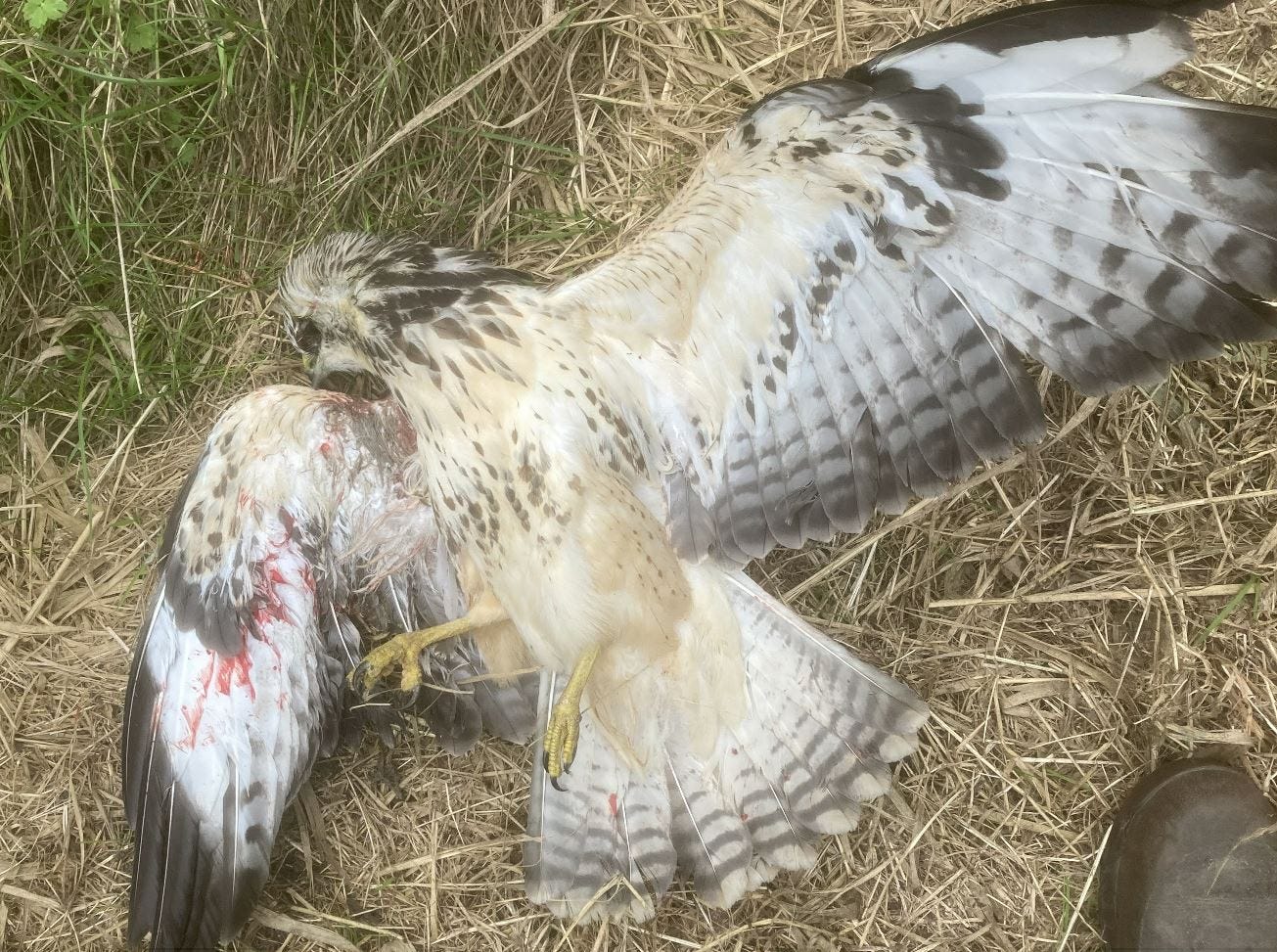Dorset gamekeeper Paul Scott Allen appeared before Weymouth Magistrates’ Court on Wednesday, January 4 where he pleaded guilty to seven offences including possession of a live or dead bird (or parts thereof) and misuse of a regulated poison.
Allen appeared in court after an extensive investigation by police which began in November 2020 when a dead Red Kite was found close to a dead rat.
All birds of prey are protected in the UK, but toxicology reports found that the rat was ‘laced with poison’ (regulated toxins – including Strychnine, a highly toxic pesticide often used to kill birds and rodents – were found on Allen’s premises) which would have been left in the open to deliberately attract and illegally kill this Red Kite. Leaving a poisoned bait in the open is itself an offence.
Allen’s targeting of a Red Kite will not have been accidental. A once very rare bird of prey that up until the 1980s was almost entirely confined to mid-Wales, the species has been the subject of enormous conservation efforts and its population is still expanding today. As Red Kites spread into new areas they are being regularly targeted by gamekeepers working for shooting estates. A 2010 study found that 40% of the 103 Red Kites found dead between 1989 and 2006 were killed through poisoning, and a poisoned Red Kite found on the Moy Estate (near Cairngorms National Park) partly led to the infamous estate having its General Licence removed in 2022.
The court heard that subsequent searches located a ‘fire in the yard’ and more dead birds of prey – including six Buzzards and ‘parts’ of three further Buzzards. Like Red Kites, Common Buzzards have bounced back from near extermination and are increasingly targeted by gamekeepers.
Police also found a shotgun that was behind a door and loaded (it should have been properly secured) as well as rounds of ammunition – neither of which were covered by the gamekeeper’s firearms licenses
He had ‘a lot going on’
Allen pleaded guilty to possession of dead Common Buzzards, parts of Common Buzzards, failure to comply with conditions of a shotgun certificate, contravening a health and safety regulation and use of a regulated substance without a licence.
To mitigate what turned out to be a catalogue of crime, it was said that Allen had no previous convictions – which given the difficulties of obtaining convictions and the disintegrating UK court system is no mitigation at all. Allen’s defence barrister also said the 54 year old had ‘made mistakes’ but ‘there was a lot going on in (his) life’. Presumably that didn’t include reading up on the laws protecting birds of prey, the legislation on the use of toxins, or the Home Office’s Firearms Security pdf which states on its first page that “guns and section 1 ammunition must be stored securely to prevent, so far as is reasonably practicable, unauthorised people taking or using them“.
The case was adjourned until Thursday, February 16 at Weymouth Magistrates’ Court for a pre-sentence report to be produced.
Gamekeeping’s grim pattern of killing birds of prey
Interestingly, Prosecutor Ms Elizabeth Valera told the court that the findings ‘showed a pattern in how (Allen) works’.
Allen’s case is reminiscent of that of gamekeeper Matthew Stroud who appeared at Norwich Magistrates’ Court in October 2022 and admitted to the intentional killing of six Common Buzzards and a single Northern Goshawk (police found photos of the dead raptors, including the image above, on his mobile phone); of the July 2022 case of twenty-one year old Wiltshire gamekeeper Archie Watson, who was recorded dumping a dead bird of prey into a well on the shooting estate he worked on which was later found to contain the bodies of five dead buzzards and three Red Kites; of the nine poisoned buzzards found on Norfolk’s Stody shooting estate in 2014, killed by former gamekeeper Allen Lambert; and the conviction of Scots gamekeeper Alan Wilson who was convicted in 2019 of illegally killing dozens of animals – including shooting two Goshawks, four Common Buzzards, and a Peregrine falcon – between March 2016 and May 2017 on Longformacus Estate in the Scottish Borders.
Just a few weeks ago news broke of the stamping to death of four Hen Harrier chicks in a nest in North Yorkshire – a ‘black hole for raptors‘ according to the Yorkshire Post because of its grouse moors and shooting estates.
The latest RSPB Birdcrime Report confirms that the shooting industry continues to drive the illegal persecution of birds of prey, listing 108 confirmed incidents across Britain in 2021. The tally of dead birds includes 50 Common Buzzards, 16 Red Kites, seven Peregrines and three Goshawks.
It’s clear to anyone following cases of raptor persecution that the serial killing of birds of prey by gamekeepers is not a pattern of the individual but of the shooting industry itself.
Header image copyright Guy Shorrock/RSPB





